Will Apple Intelligence Impact Patient Care?
Apple will unveil iPhone 16 on Sept 9th with new AI features accessible with the touch of a finger
Technology is nothing. What’s important is that you have faith in people, that they’re basically good and smart — and if you give them tools, they’ll do wonderful things with them.
- Steve Jobs
I use ChatGPT or a similar tool almost everyday now. Not for patient care, but to find answers to a wide range of questions - often ones that my kids ask me but I don’t know the answer. For example, the college football season has kicked off and one of my kids asked me how many teams are ranked. That’s easy, “25” I said, thinking about the Top 25 Poll. But then they asked a natural follow-up question. How many teams are there total in college football. I figured it was between 100 and 150 teams, but that answer wasn’t good enough. It’s gotten to the point where if I say I’m not exactly sure, my kids might tell me to ask ChatGPT. So I did:
I did a google search and found the same answer here, so seemed like it got it right. ChatGPT for the win - again. So what does that mean for Apple Intelligence’s impact on patient care? First, a quick note and then we’ll dive in.
The Digital Transformation of Health Care 2.0
In January 2024, I launched this Substack to follow along with my Wharton MBA Course on The Digital Transformation of Health Care. See prior posts here. After a summer break from posting, I’m relaunching this Substack to explore similar topics but at broader scale than the course. This means:
Some posts may still be introductory, but others will go much deeper into topics
Posts will likely be about every 2 weeks, rather than weekly, but may vary
AI will be discussed often because it is driving much of the transformation, but AI is not the sole focus and other topics will also be covered
Posts will continue to be educational, but some will leave you with more questions than answers, and that’s ok
Posts are not endorsements or investing advice. They are personal opinions and do not reflect the views of my past, present or future employers, clients, or colleagues. Seems obvious, but alas must be stated.
So, let’s go!
What is Apple Intelligence
In June 2024, Apple announced Apple Intelligence. It was Apple's latest foray into the world of artificial intelligence, seamlessly integrating advanced machine learning capabilities across its ecosystem of devices and services.
Key Features of Apple Intelligence:
Personalized Interactions: Apple Intelligence tailors device behavior based on individual user habits and preferences, offering recommendations, reminders, and automation that align with personal routines.
On-Device Processing: To protect user privacy, Apple Intelligence processes data on the device itself, minimizing the need for cloud-based data storage and reducing exposure to potential security risks.
Contextual Awareness: The AI system can understand and adapt to the context in which the user is operating, such as location, time of day, or activity, to provide relevant suggestions and actions.
Proactive Notifications: The system intelligently delivers notifications and alerts that matter most, reducing distractions and helping users stay focused on their tasks.
Enhanced Siri: Apple Intelligence powers an upgraded version of Siri, offering more natural language processing capabilities and faster, more accurate responses to queries.
One of the the most notable features announced was:
ChatGPT Integration: Users can interact with ChatGPT directly through Apple Intelligence, enabling natural language conversations and assistance across Apple devices for various tasks and inquiries.
AI Access Democratized
Apple Intelligence is set to democratize access to AI by embedding powerful AI capabilities directly into the iPhone, a device used by over 50% of smartphone users in the United States. Until now, a user had to download an app or login to a website to access an LLM (large language model). By integrating AI into a platform that millions already rely on daily, Apple lowers barriers to adoption, making advanced AI tools accessible to a broader audience at the touch of a finger. The familiarity and convenience of accessing AI through the iPhone means users don’t need specialized knowledge or additional hardware to benefit from AI-driven insights and automation. This ease of use is likely to drive higher adoption rates, as more people can leverage AI in their everyday lives, from personal tasks to professional productivity, fostering widespread engagement with the technology.
Potential Impact on Patient Care
Over 85% of doctors use an iPhone. Most already use their smartphones to augment patient care. This could be as simple as a google search for an answer to a question or through a mobile application to access the patient’s health record or look up medication dosing. It’s worth noting that Google searches now sometimes display AI overviews in the results through their product, Gemini - so the genie may already be out of the bottle. Here are some ways clinicians might start using Apple Intelligence for patient care:
Diagnostic Assistance
A clinician is seeing a patient who presents with fatigue and a low blood count, but no signs of bleeding. They order a number of tests to evaluate if the patient has anemia. The clinician is reviewing the lab findings and wants to remind themselves of the difference in test results between two different types of anemia. Here’s an example from when I asked ChatGPT for a hypothetical patient:
Medication Dosing
It’s difficult to remember dosing for every medication, some of which differ based on the condition being targeted. Clinicians often use a reference tool to look up and confirm dosing. Could Apple intelligence provide access to an LLM to do this? Lets try it out on ChatGPT:
That’s pretty good. I would have had to go to a website or open a mobile app and then do a search to get that information. Now I can just type or speak that into my phone. But is it accurate? I asked ChatGPT for a reference and it was indeed accurate, but one wonders how often it might get it wrong:
No doubt, there are many other ways it could be used to augment a clinician during their everyday tasks. Many of these things are already possible by using ChatGPT (as I have shown in the examples), Gemini, Perplexity or one of the other products. But the big change with Apple Intelligence is that the features can be accessed much faster and without having to download or subscribe through a separate app.
What are the potential risks of relying on AI for medical advice, and how can these risks be mitigated?
While the potential of Apple Intelligence for patient care is vast, ensuring its safe and ethical use will be crucial. Integrating AI into healthcare introduces new challenges that must be carefully addressed to protect patient privacy, maintain accuracy, and uphold clinical standards. Below are key considerations for safeguarding the use of AI in patient care. It’s likely that government agencies, professional societies, and health systems themselves may will start to provide this type of guidance as its adoption picks up.
Data Privacy and HIPAA Compliance:
Minimize sending patient identifiers and data to the AI. Ensure that all data processed by the AI is encrypted and meets strict privacy standards, such as HIPAA regulations, to protect sensitive health information from unauthorized access.
Accuracy and Reliability of Information:
Regularly validate the AI's responses with updated medical guidelines and research to ensure clinicians are receiving accurate, evidence-based advice. ChatGPT is the only cloud-based LLM (large language model) available right now but I have no doubt that medical grade products are on their way
Clinician Oversight:
AI should serve as a tool to support, not replace, clinical decision-making. All AI-driven suggestions or diagnoses should be reviewed and approved by healthcare providers before implementation.
Bias and Inclusivity:
The AI algorithms must be designed and tested to minimize bias, ensuring that the recommendations are effective and equitable for all patient populations, regardless of gender, race, or socioeconomic status.
Summary
I’m not suggesting that every clinician should rush out to buy the latest iPhone just to use Apple Intelligence for patient care. Instead, the point is that Apple Intelligence has the potential to democratize access to AI tools by making them simple and easily available on a device that many will use daily. Initially, this technology may be used for answering mostly trivial questions—like how many teams are there in college football—but as adoption grows, so will its role in addressing more complex, non-trivial questions. We’ve seen this kind of evolution before, most notably in 2007 when the iPhone enabled instant access to the internet. Apple Intelligence could do the same for AI in healthcare.
While Apple Intelligence will make generative AI technology much easier to use, its true impact on patient care will rely on the experience, ingenuity and compassion of the clinicians who use it. As Steve Jobs indicated, it's not the technology itself, but the people behind it who make the real difference.




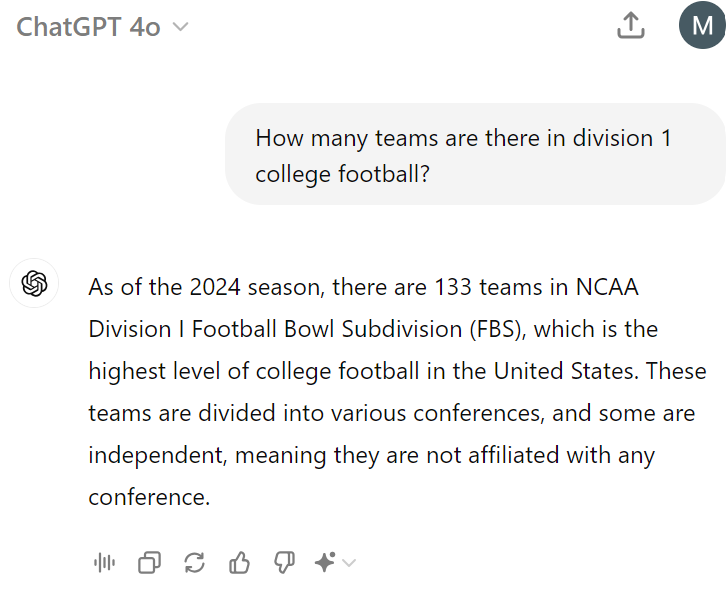
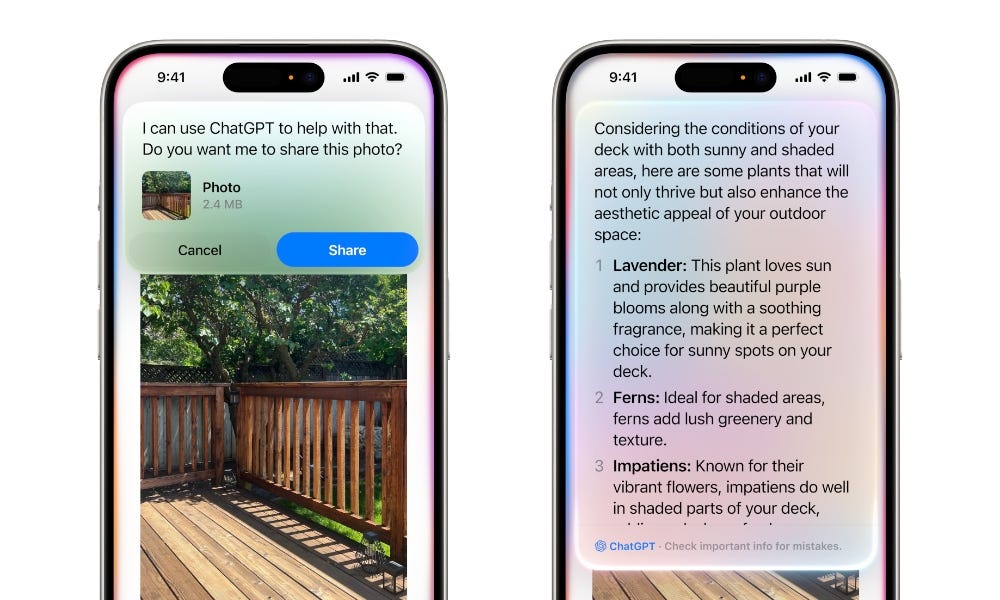
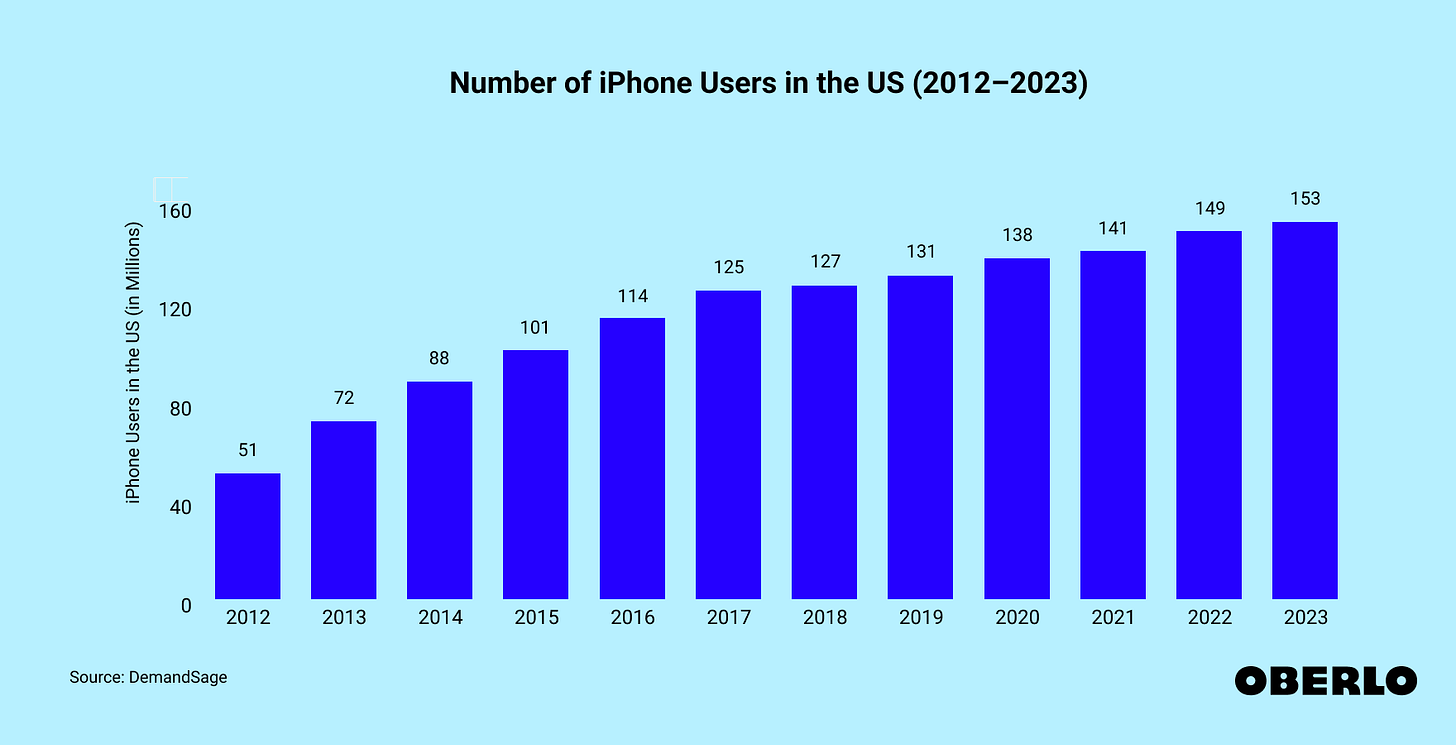
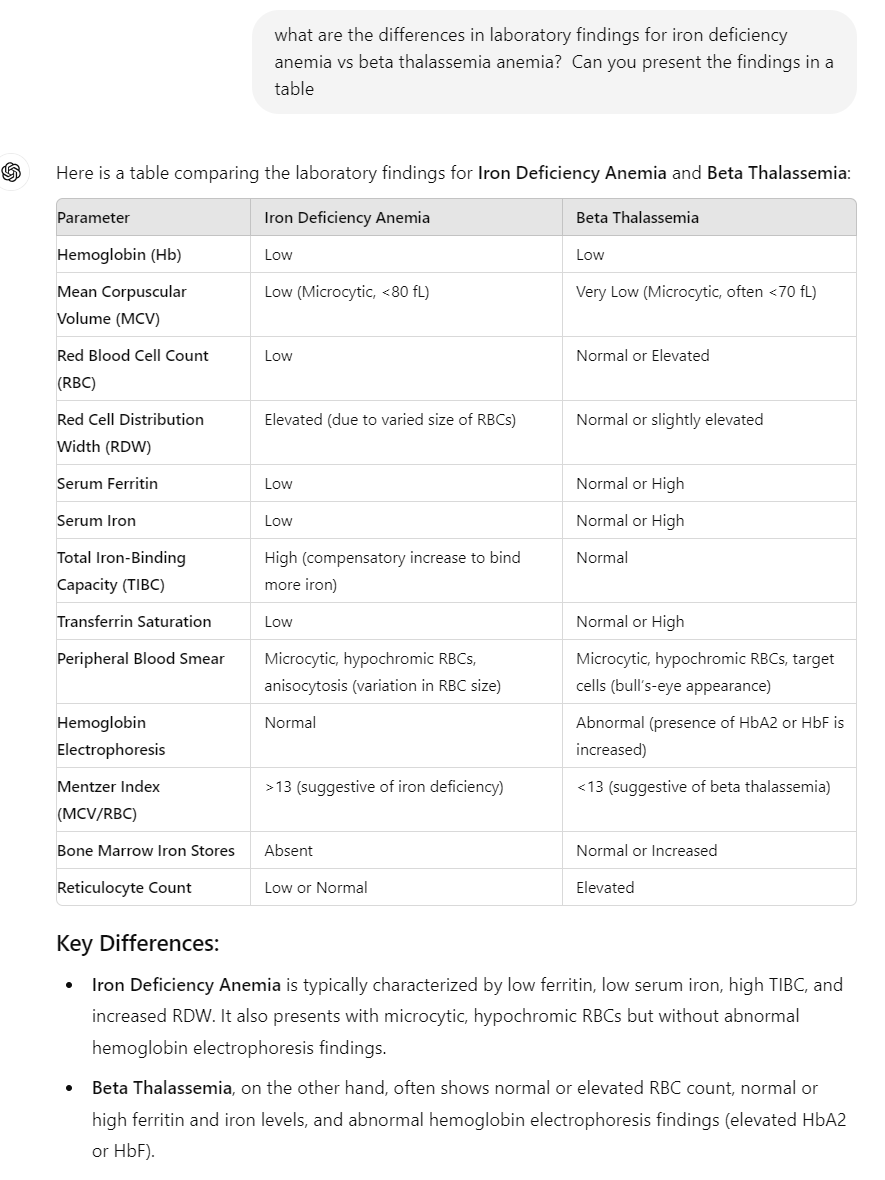
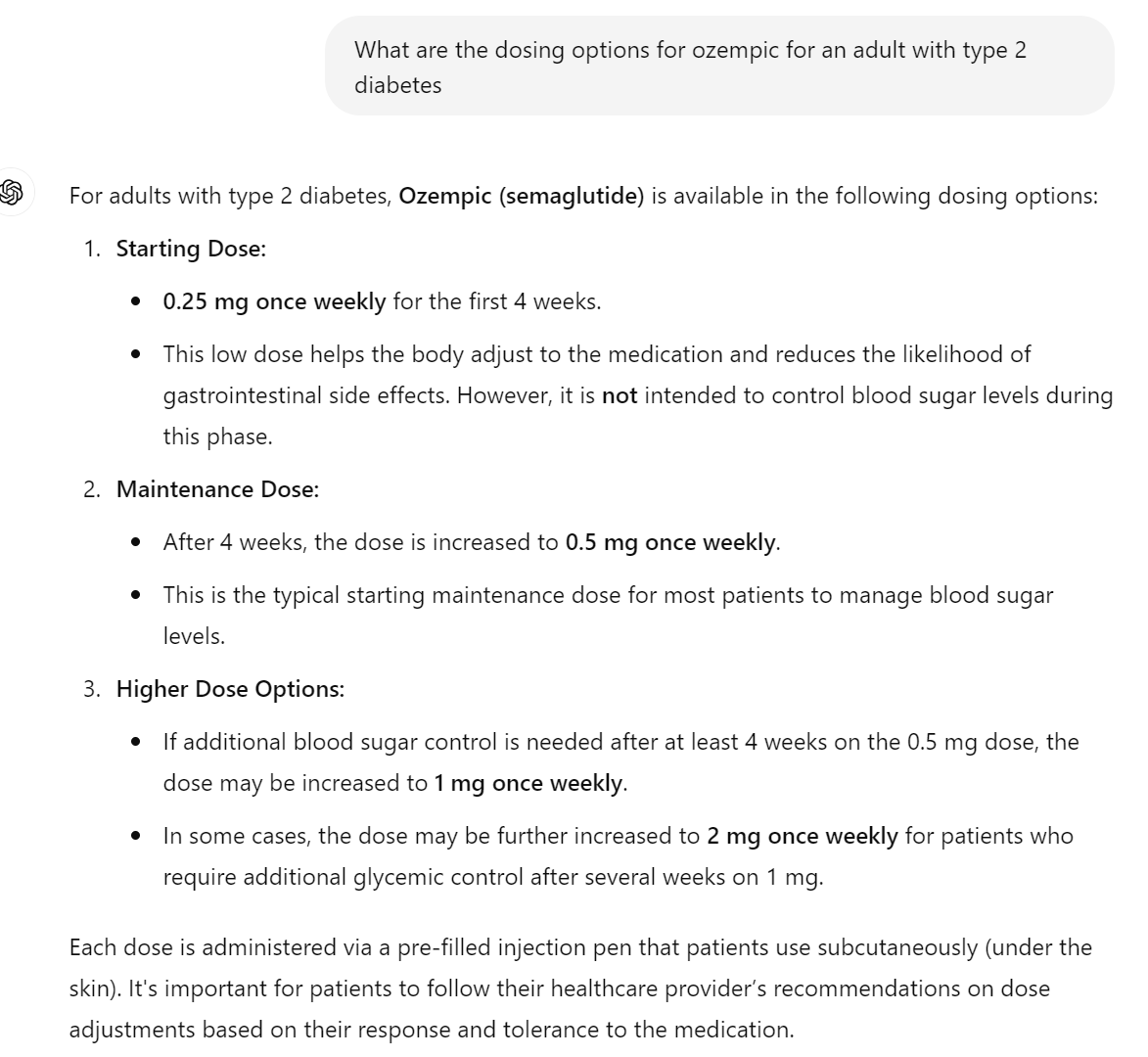

My fingers are crossed. It will be interesting to see what people do with this. I wonder if doctors have to train on how to manage patient expectations. Patients will use the same tech who may have less knowledge to cross-check the advice.